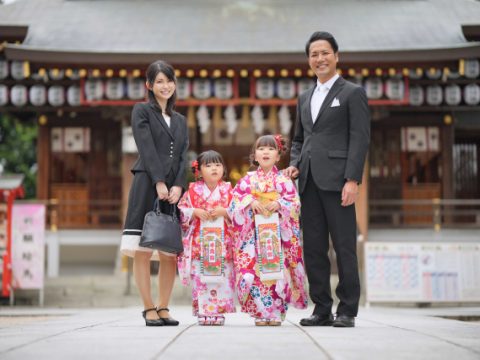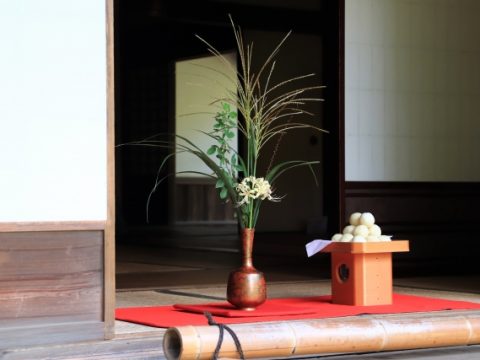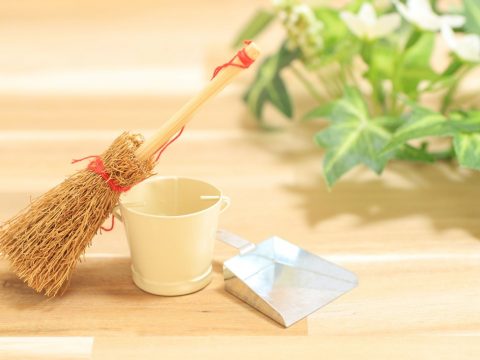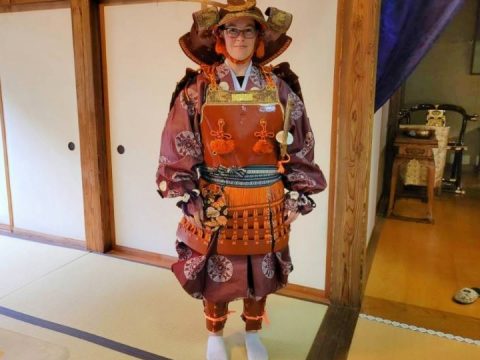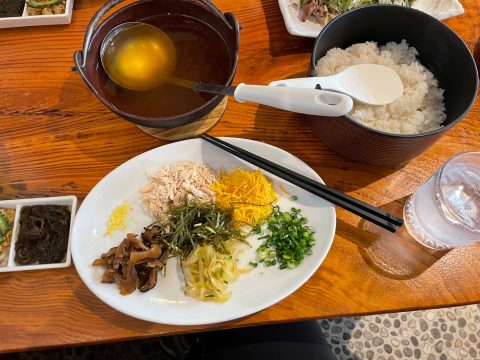Mugicha (麦茶)
JAPANESE FOODS
05.08.2023
Northern New York, where I currently reside, has been experiencing some remarkably hot, humid, and rainy days. It is quite unusual for this area. Although I don’t appreciate the heat and humidity, this weather reminds me of home. During a recent visit to New Jersey, I had the pleasure of exploring a large Japanese market and came across Mugicha on the shelf. Instantly, cherished memories of my summer vacations came rushing back. Now, having this delightful, refreshing tea in my fridge during this hot weather makes me incredibly happy.
What is Mugicha?
Mugicha is also known as Barley tea. It is a popular non-caffeinated beverage in Japan and Korea. It is made from roasted barley grains and is commonly consumed as a cold or hot drink. The tea has a light, nutty, and slightly toasty flavor, which makes it a refreshing and soothing beverage.
History of Mugicha
The history of Mugicha dates back to ancient times in East Asia. The origins of barley tea can be traced to China, where it was initially consumed for its perceived medicinal benefits. Historical records suggest that barley tea was first mentioned in Chinese texts during the Three Kingdoms period (220-280 AD).
From China, the practice of drinking barley tea spread to Korea and Japan. In Japan, it is believed to have been introduced around the Nara period (710-794 AD). Over time, the popularity of Mugicha grew in both countries due to its refreshing taste and purported health benefits.
Barley tea gained popularity in Japan, especially during the Edo period (1603-1868), when tea merchants began roasting barley and selling it as an alternative to traditional green tea. The roasting process gave the tea a unique flavor, and it became a common beverage in Japanese households. Mugicha’s appeal further increased during hot summers when it was consumed for its cooling properties.
What is the health benefit?
As I mentioned previously, Mugicha was consumed for its medical benefits. It is important to note that while some of these benefits are supported by anecdotal evidence and traditional use, more scientific research is needed to fully understand the extent of these effects. Here are some potential health benefits associated with Mugicha:
- Hydration: Like any non-caffeinated beverage, Mugicha is a good source of hydration, helping to maintain proper bodily functions and prevent dehydration.
- Digestive Health: Mugicha is often considered a digestive aid, especially in Japanese and Korean cultures. It is believed to help soothe the stomach and alleviate indigestion or bloating.
- Antioxidants: Barley contains antioxidants, such as polyphenols, which can help neutralize harmful free radicals in the body and contribute to overall health.
- Minerals and Nutrients: Barley is a good source of certain minerals like manganese, selenium, and phosphorus, as well as B vitamins, which are essential for various bodily functions.
- Weight Management: Some believe that the soluble fiber found in barley may help with weight management and satiety by promoting a feeling of fullness.
- Blood Sugar Regulation: Barley contains beta-glucans, a type of soluble fiber that may help regulate blood sugar levels, potentially benefiting individuals with diabetes or those at risk of developing diabetes.
- Cholesterol Reduction: Some studies suggest that barley intake may have a positive impact on reducing LDL cholesterol levels, potentially contributing to heart health.
Try Mugicha at home
Today, Mugicha remains a beloved drink in both Japan and Korea, enjoyed by people of all ages. It is commonly available in teabag form for easy preparation at home, as well as bottled or canned in stores. Even if you are not in Japan, most Japanese markets carry Mugicha. If you have never had Mugicha before, try it cold during this hot summer.

Eri Palmer
Eri grew up in Japan. She came to U.S. as an international student, and decided to stay in the country. Cooking is one of her passions, and she loves to cook Japanese food for her children.
Read previous articles by the writer
Read latest articles
KEYWORDS
- # PICKPICK
- # Resume
- # alcohol
- # Rice
- # Soup
- # winter food
- # Fast Food
- # seafood
- # spicy foods
- # raw food
- # fermented food
- # Transportation
- # MEAT
- # Edo culture
- # suits
- # clothing
- # drink
- # fish
- # seasoning
- # Japanese New Years Foods
- # Toshikoshi soba
- # Osechi Ryori
- # Ozoni
- # Christmas
- # Japanese fusion pasta
- # Wafu Pasta
- # Japanese Hot Pot
- # なべ
- # 鍋
- # Miyazaki
- # Chicken Nanban
- # Karamen
- # Autumn Wagashi
- # Mushi-yokan
- # Imo-yokan
- # Japanese Autumn Fruits
- # Autumn
- # Vending Machine
- # fall
- # dango
- # Chestnut rice
- # saury
- # Mushroom
- # Rice vinegar
- # Japanese condiments
- # 調味料
- # Sake
- # Mirin
- # Soy sauce
- # Japanese Noodles
- # Udon
- # Ramen
- # Yakisoba
- # Soba
- # Japanese Seaweed
- # 海藻
- # かいそう
- # Payslip
- # Training
- # Japanese summer foods
- # 和菓子
- # Wagashi
- # ryokucha
- # 夏
- # 飲み物
- # Ramune
- # ラムネ
- # Pokari Sweat
- # ポカリスエット
- # Calpis
- # カルピス
- # Mugicha
- # ume
- # 梅
- # うめ
- # umeshu
- # job hunting
- # tofu
- # Recruitment in Japan
- # miso
- # Japanese cuisine
- # Yellowtail and bonito
- # Children’s Day
- # Kashiwa Mochi
- # Chimaki
- # fruits
- # Kusamochi
- # Types of Agriculture in Japan
- # bread
- # パン
- # パン屋さん
- # japanese bread
- # shokupan
- # meal blead
- # anko bread
- # 桜
- # さくら
- # cherry blossom
- # visa
- # hanami
- # omotenashi
- # sakura
- # おもてなし
- # Japanese hospitality
- # oshibori
- # wet hand towel
- # hand towel
- # restaurant
- # Commuting in Japan
- # Women-only cars
- # Exit gate
- # japanese train
- # train
- # valentine
- # Japanese sweets
- # 朝食
- # Japanese Breakfast
- # Breakfast
- # Japanese
- # 日本
- # healthy
- # persimmons
- # hoshigaki
- # HR
- # work in Japan
- # jinji ido
- # corporate systems
- # Japanese work culture
- # bento
- # ekiben
- # shinkansen
- # omiyage
- # train station
- # Japanese culture
- # work culture
- # mentaiko
- # umeboshi
- # Japanese snacks
- # potato chips
- # Japanese potato chips
- # Japanese writing
- # seaweed
- # konbu
- # ocean foods
- # shio konbu
- # dashi
- # miso soup
- # food processing
- # pear
- # nashi
- # sweet potato
- # japanese sweet potato
- # stingray
- # satsuma imo
- # food value chain
- # homecooking
- # agriculture
- # Japanese homecooking
- # farming
- # nikujaga
- # shojin ryori
- # meat and potatoes
- # traditional foods
- # comfort food
- # buddhist food
- # manufacturing
- # factory
- # eihire
- # vegetarian
- # food and beverage
- # izakaya
- # yatai
- # japanese festival
- # taiyaki
- # matsuri
- # summer
- # Ikayaki
- # smart agriculture
- # shaved ice
- # kakigori
- # かき氷
- # summer dessert
- # Japan
- # Japanese foods
- # dessert
- # fruit
- # matcha
- # icecream
- # Pikcup
- # Pikc up
- # Pcikup
- # skilled labor visa
- # working visa japan
- # Dineer Table in Japan
- # Japanese manner
- # Japanese food
- # Japanese Table Manner
- # Chopsticks
- # Japanese traffic signs
- # traffic information
- # road rules in Japan
- # chocolate
- # green tea
- # Osaka
- # Work Japan
- # Japanese company
- # ikura
- # sushi
- # nigiri
- # wasabi
- # PCIK
- # PICK UP
- # PICK
- # PICKUP


